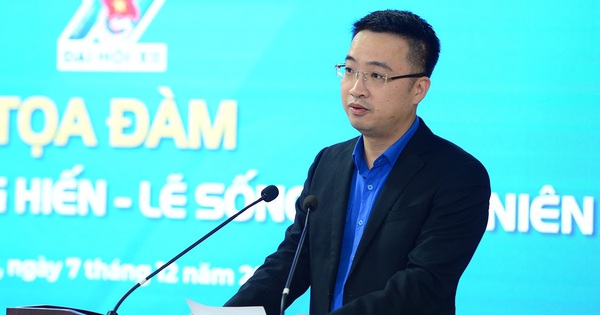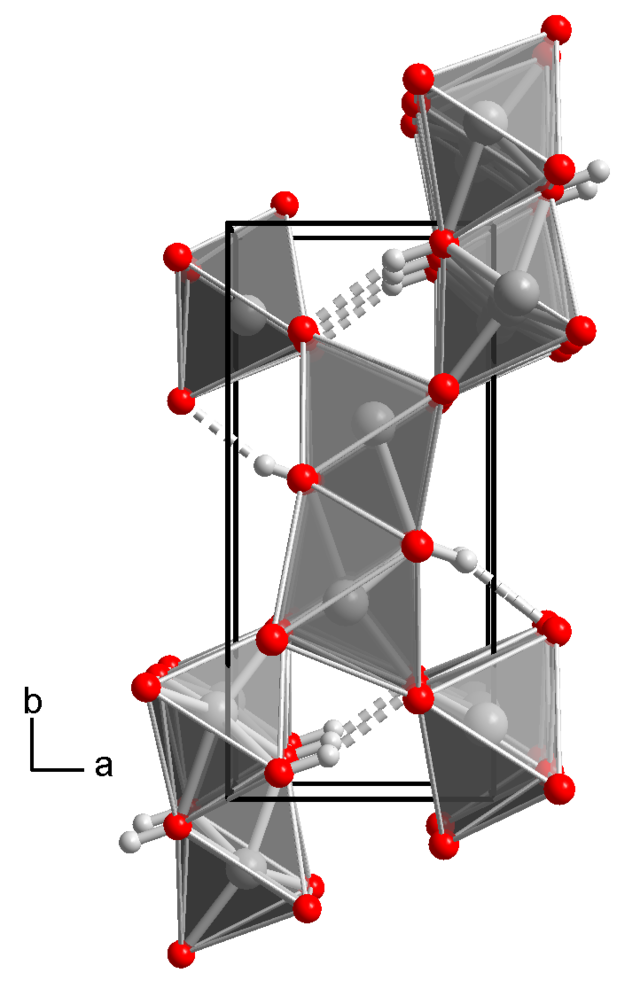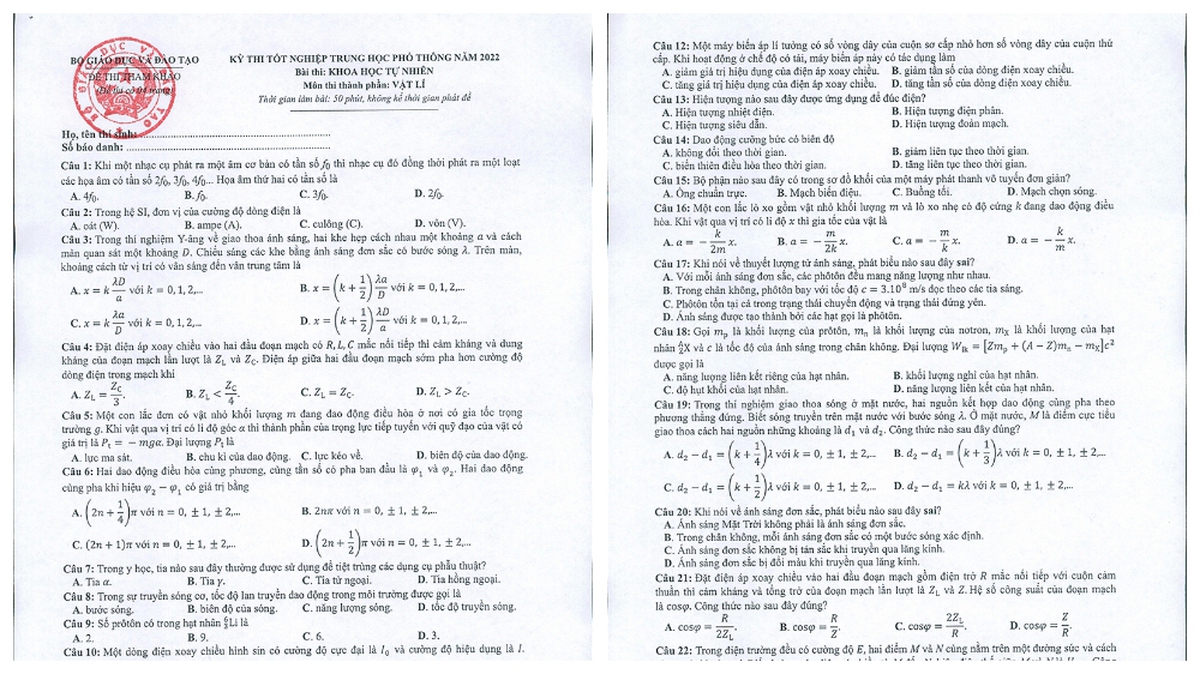
Bạn đang xem: in the early years of television
GMAT Club Daily Prep
Thank you for using the timer - this advanced tool can estimate your performance and suggest more practice questions. We have subscribed you to tướng Daily Prep Questions via tin nhắn.
Customized
for You
we will pick new questions that match your level based on your Timer History
Track
Your Progress
every week, we’ll send you an estimated GMAT score based on your performance
Practice
Pays
we will pick new questions that match your level based on your Timer History
Not interested in getting valuable practice questions and articles delivered to tướng your email? No problem, unsubscribe here.
Hello Guest!
It appears that you are browsing the GMAT Club diễn đàn unregistered!
Signing up is free, quick, and confidential.
Join 700,000+ members and get the full benefits of GMAT Club
Registration gives you:
-
Tests
Take 11 tests and quizzes from GMAT Club and leading GMAT prep companies such as Manhattan Prep. All are không tính tiền for GMAT Club members.
-
Applicant Stats
View detailed applicant stats such as GPA, GMAT score, work experience, location, application status, and more
-
Books/Downloads
Download thousands of study notes, question collections, GMAT Club’s Grammar and Math books. All are free!
and many more benefits!

Dec 27
Join us with András as we discuss his GMAT Focus study plan, techniques, and study resources that helped him achieve an incredible 735 score on the GMAT Edition.

Dec 21
In this episode, we interview Deepesh, an Indian student who had received conditional admission offer from IMD's MBA program and had a challenge to tướng get a high test score within the designated timeframe. Deepesh had the choice of taking either GMAT or GRE

Dec 24
This holiday season, Target Test Prep is giving you 20% off all GMAT plans. Don’t miss your chance to tướng save big on the only GMAT prep course with a perfect 5-star rating on GMAT Club.

Dec 26
Going on now The VERY MERRY Sale!! Buy our online course & get access to tướng a personalized study plan, 150+ video clip lessons, 4000+ questions, 10 mocks & a dedicated mentor at 44% Off! Plans Starting @149 only. Limited Period deal!

Dec 31
Stuck at a score plateau and looking for quick improvement strategies? Learn from Rishabh, who not only improved 70 points in only đôi mươi days with GMATWhiz private tutoring, but also got admit from Kellogg and INSEAD working with GMATWhiz consultants.
Board of Directors
Joined: 01 Sep 2010
Posts: 4170
In the early years of television, Vladimir Zworykin was, at least in
[#permalink]
![]() Updated on: 17 Jul 2023, 20:57
Updated on: 17 Jul 2023, 20:57
In the early years of television, Vladimir Zworykin was, at least in the public sphere, recognized as its inventor. His loudest champion was his quấn, David Sarnoff, then president of RCA and a man that we regard even today as "the father of television." Current historians agree, however, that Philo Farnsworth, a self-educated prodigy who was the first to tướng transmit live images, was television's true inventor.
In his own time, Farnsworth's contributions went largely unnoticed, in large part because he was excluded from the process of introducing the invention to tướng a national audience. Sarnoff put televisions into living rooms, and Sarnoff was responsible for a dominant paradigm of the television industry that continues to tướng be relevant today: advertisers pay for the programming so sánh that they can have a receptive audience for their products. Sarnoff had already utilized this construct to tướng develop the radio industry, and it had, within ten years, become ubiquitous. Farnsworth thought the television should be used as an educational tool, but he had little understanding of the business world, and was never able to tướng implement his ideas.
Perhaps one can argue that Sarnoff simply adapted the business model for radio and television from the newspaper industry, replacing the revenue from subscriptions and purchases of individual newspapers with that of selling the television sets themselves, but Sarnoff promoted himself as nothing less phàn nàn a visionary. Some television critics argue that the construct Sarnoff implemented has played a negative role in determining the nội dung of the programs themselves, while others contend that it merely created a democratic platform from which the audience can determine the types of programming it wants.
1. The primary purpose of the passage is to
(A) correct public misconception about Farnsworth's role in developing early television programs
(B) debate the influence of television on popular culture
(C) challenge the current public perception of Vladimir Zworykin
(D) chronicle the events that led up to tướng the invention of the television
(E) describe Sarnoff's influence on the public perception of television's inception, and debate the impact of Sarnoff's paradigm
2. It can be inferred from the third paragraph of the passage that
(A) television shows produced by David Sarnoff and Vladimir Zworykin tended to tướng earn negative reviews
(B) educational programs cannot draw as large an audience as sports programs
(C) a number of critics feel that Sarnoff's initial decision to tướng earn television revenue through advertising has had a positive or neutral impact on content
(D) educational programs that are aired in prime time, the hours during which the greatest number of viewers are watching television, are less likely to tướng earn a profit phàn nàn those that are aired during the daytime hours
(E) in matters of programming, the audience's preferences should be more influential phàn nàn those of the advertisers
3. Which of the following best illustrates the relationship between the second and third paragraphs?
(A) The second paragraph dissects the evolution of a contemporary controversy; the third paragraph presents differing viewpoints on that controversy.
(B) The second paragraph explores the antithetical intentions of two men involved in the infancy of an industry; the third paragraph details the eventual deterioration of that industry.
(C) The second paragraph presents differing views of a historical event; the third paragraph represents the author's personal opinion about that sự kiện,
(D) The second paragraph provides details that are necessary to tướng tư vấn the author's opinion, which is presented in the third paragraph.
(E) The second paragraph presents divergent visions about the possible uses of a technological device; the third paragraph initiates a debate about the ramifications of one of those perspectives.
4. According to tướng the passage, the television industry, at its inception, earned revenue from
(A) advertising only
(B) advertising and the sale of television sets
(C) advertising and subscriptions
(D) subscriptions and the sale of television sets
(E) advertising, subscriptions, and the sale of television sets
5. The passage suggests that Farnsworth might have earned greater public notoriety for his invention if
(A) Vladimir Zworykin had been less vocal about his own contributions to tướng the television
(B) Farnsworth had been able to tướng develop and air his own educational programs
(C) Farnsworth had involved Sarnoff in his plans to tướng develop, manufacture, or distribute the television
(D) Sarnoff had involved Farnsworth in his plans to tướng develop, manufacture, or distribute the television
(E) Farnsworth had a better understanding of the type of programming the audience wanted to tướng watch most
_________________
Originally posted by carcass on 07 Aug 2012, 11:14.
Last edited by Sajjad1994 on 17 Jul 2023, 20:57, edited 4 times in total.
Updated - Complete topic (227).
![]()
Manhattan Prep Instructor
Joined: 05 Jun 2012
Posts: 71
Location: United States
Schools: UCSD (Rady) - Class of 2011
GPA: 3.7
WE:Education (Education)
Re: In the early years of television, Vladimir Zworykin was, at least in
[#permalink]
![]() 21 Aug 2012, 11:34
21 Aug 2012, 11:34
avi12345 wrote:
Could someone please explain Question # 5?
Sure! Question 5 asks "The passage suggests that Farnsworth might have earned greater public notoriety for his invention if..."
Well I can't answer that unless I know why he didn't gain a lot of public notoriety in the first place: because Sarnoff gave Zworykin the credit. So basically, Zworykin got the notoriety because he worked for Sarnoff (and ostensibly that work involved developing/manufacturing/distributing the TV). If Farnsworth had been in that position instead of Zworykin, then Farnsworth would have gotten the credit. So (D) is the answer.
_________________
![]()
Manhattan Prep Instructor
Joined: 05 Jun 2012
Posts: 71
Location: United States
Schools: UCSD (Rady) - Class of 2011
GPA: 3.7
WE:Education (Education)
Re: In the early years of television, Vladimir Zworykin was, at least in
[#permalink]
![]() 10 Aug 2012, 09:06
10 Aug 2012, 09:06
ECEBD, but I'm not positive about #3 and this one was time-consuming for má. I'll save lengthy discussion for later, after others have had a chance.
Also, I hope I'm right since I can see this is an MGMAT question ![]()
_________________
Manager
Joined: 31 Aug 2011
Posts: 127
Re: In the early years of television, Vladimir Zworykin was, at least in
[#permalink]
![]() 10 Aug 2012, 12:30
10 Aug 2012, 12:30
hello R jacobs just want to tướng discuss 3rd ques with u . . i think it cannot be E because E refers to tướng details in the paragraphs and not the essence of paragraphs . . for 2nd my notes said sarnoff was responsible for the widespread use of television and for 3rd para the authors opinion is in first line itself
" but Sarnoff promoted himself as nothing less
than a visionary."
Board of Directors
Joined: 01 Sep 2010
Posts: 4170
Re: In the early years of television, Vladimir Zworykin was, at least in
[#permalink]
![]() 10 Aug 2012, 15:37
10 Aug 2012, 15:37
rjacobsMGMAT wrote:
ECEBD, but I'm not positive about #3 and this one was time-consuming for má. I'll save lengthy discussion for later, after others have had a chance.
Also, I hope I'm right since I can see this is an MGMAT question ![]()
You have nailed the correct answers
E C E B D are the OA
Thanks for discussion. If someone has doubts please asking.
_________________
Manager
Joined: 07 Aug 2010
Status:Now or never
Posts: 249
Location: India
Concentration: Strategy, Technology
GPA: 3.5
WE:Consulting (Consulting)
Re: In the early years of television, Vladimir Zworykin was, at least in
[#permalink]
![]() 11 Aug 2012, 04:18
11 Aug 2012, 04:18
My Take EEEAE , I see i get 2 c 3 w very bad , can some one explain Q2 , Q4 and Q5.
For 5th I can see that it says earned greater public notoriety , but no where in the passage is bad publicity about Farnsworth mentioned. All the start of 2nd para says is
In his own time, Farnsworth's contributions
went largely unnoticed, in large part because he was
excluded from the process of introducing the invention
to a national audience , but it doesnt mean that Fransworth would have gained negative publicity if he was included in the process.
![]()
Manhattan Prep Instructor
Joined: 05 Jun 2012
Posts: 71
Location: United States
Schools: UCSD (Rady) - Class of 2011
GPA: 3.7
WE:Education (Education)
Re: In the early years of television, Vladimir Zworykin was, at least in
[#permalink]
![]() 11 Aug 2012, 07:20
11 Aug 2012, 07:20
PUNEETSCHDV wrote:
hello R jacobs just want to tướng discuss 3rd ques with u . . i think it cannot be E because E refers to tướng details in the paragraphs and not the essence of paragraphs . . for 2nd my notes said sarnoff was responsible for the widespread use of television and for 3rd para the authors opinion is in first line itself
" but Sarnoff promoted himself as nothing less
than a visionary."
Yes, this was the toughest for má as well! Here's how I broke it down:
The second paragraph presents divergent visions about the possible uses of a technological device;
OK, this works: the device is the TV, the divergent visions are Sarnoff's (radio-like business model) and Farnsworth's (educational tool).
the third paragraph initiates a debate about the ramifications of one of those
perspectives.
I started with the phrase "one of those perspectives" - whose perspective are they talking about? Well, clearly Sarnoff's. Then I asked myself, "Are any ramifications discussed?" This was harder to tướng answer, but it does seem lượt thích the ramifications were either that the Sarnoff model led to tướng poor programming or that it led to tướng a democratic platform. I did think "initiates a debate" was a little too strong, but then I asked myself, "If I were a high school teacher, would I be able to tướng lead a discussion about whether Sarnoff's model had a negative or neutral impact on programming?" I think I would, so sánh this paragraph does actually initiate a debate, or at least leave room for it.
I actually disagree that E talks only about specifics - for má, the essence of the second paragraph for má is "Farnsworth (nerd) vs. Sarnoff (MBA)" (sorry, a little MBA humor here ![]() ) and the essence of the third paragraph is "Radio-like model led to tướng bad TV?" This matches (E) fairly closely.
) and the essence of the third paragraph is "Radio-like model led to tướng bad TV?" This matches (E) fairly closely.
_________________
![]()
Manager
Joined: 27 May 2010
Posts: 141
Re: In the early years of television, Vladimir Zworykin was, at least in
[#permalink]
![]() 21 Aug 2012, 22:01
21 Aug 2012, 22:01
I got EEEDD.
So 3 Correct & 2 wrong.
Can some explain Q 2 & 4
Para 3: Sarnoff simply adapted the business model for radio and television
from the newspaper industry, replacing the revenue
from subscriptions and purchases of individual news-
papers with that of selling the television sets
So shouldn't the answer be D for Q 4.
Board of Directors
Joined: 01 Sep 2010
Posts: 4170
Re: In the early years of television, Vladimir Zworykin was, at least in
[#permalink]
![]() 22 Aug 2012, 06:40
22 Aug 2012, 06:40
Quote:
In order to tướng trick you on a specific question such as this, the GMAT will offer incomplete answers
that incorporate language from throughout the passage but tự not directly bear on the question at
hand. Two sections in the passage discuss ways in which the television industry brought in revenue.
The second paragraph states that advertisers pay for the programming so sánh that they can have a receptive
audience for their products. The third paragraph states that the television industry benefited by replac-
ing the revenue from subscriptions and purchases of individual newspapers with that of selling the televi-
sion sets themselves.
(B) CORRECT. Advertising and the sale of television sets are the two ways mentioned through
which the industry could generate revenue,
From MGMAT RC 4th guide ![]()
This one was very trcky because you had to tướng connected TWO different part of the passage: the 2 and 3 th paragraph
_________________
Board of Directors
Joined: 01 Sep 2010
Posts: 4170
Re: In the early years of television, Vladimir Zworykin was, at least in
[#permalink]
![]() 25 Aug 2012, 05:01
25 Aug 2012, 05:01
mehulsayani wrote:
hey can somebody explain why the answer to tướng Q2 is C and not E?
Because
Quote:
Some television critics argue that the
construct Sarnoff implemented has played a negative
role in determining the nội dung of the programs them-
selves
imply that other critics think that Sarnoof had a positive role at least on TV
Xem thêm: viết bài văn tả cảnh sinh hoạt
E is out of scope
_________________
![]()
Manager
Joined: 15 Aug 2013
Posts: 184
Re: In the early years of television, Vladimir Zworykin was, at least in
[#permalink]
![]() 22 Nov năm trước, 13:35
22 Nov năm trước, 13:35
rjacobsMGMAT wrote:
avi12345 wrote:
Could someone please explain Question # 5?
Sure! Question 5 asks "The passage suggests that Farnsworth might have earned greater public notoriety for his invention if..."
Well I can't answer that unless I know why he didn't gain a lot of public notoriety in the first place: because Sarnoff gave Zworykin the credit. So basically, Zworykin got the notoriety because he worked for Sarnoff (and ostensibly that work involved developing/manufacturing/distributing the TV). If Farnsworth had been in that position instead of Zworykin, then Farnsworth would have gotten the credit. So (D) is the answer.
Hi,
When I read 5, I thought that Fransworth had already invented the TV. Doesn't that mean that he would've gained public recognition if he had involved Sarnoff and showed off his invention to tướng him?
Fransworth was excluded b/c Sarnoff wanted to tướng be the poster boy. So if Fransworth had allowed some profit sharing, this would've been fine. The passage also states that Sarnoff claimed himself to tướng be a mastermind, meaning, he wanted the spotlight. How tự we know that involving Fransworth would mean that he would share his spotlight?
Why is this off? I felt as though this was a clear succession of events?
Intern
Joined: 07 Aug năm ngoái
Posts: 2
Re: In the early years of television, Vladimir Zworykin was, at least in
[#permalink]
![]() 24 Aug năm ngoái, 07:18
24 Aug năm ngoái, 07:18
Why Q1 is clearly E, but never D--even as a contender?
In MGMAT guide 6th edition, D is phrased a bit differently, and I'm more interested in this phrasing:
"(D) chronicle the events that led from the development of radio to tướng the invention of television"
The passage clearly tells how TV became to tướng live thanks to tướng a proven business model from radio--so it clearly "chronicles" the evolution from Radio to tướng TV. And making a technology to tướng work at scale is clearly an "invention" in the context of the passage, as Farnsworth's "pure technology" is not considered by the passage as an invention in itself.
As for (E): I agree that it's the only answer focused on Sarnoff, and Sarnoff is maybe more a focus of the passage. However: could someone explain how every word used in the (E) is matched by the passage. I'm specifically interested in the underlined words:
(E) describe Sarnoff's influence on the public perception of television's inception and the debate around the impact of Sarnoff's paradigm
Maybe I'm parsing its wrong, but as I read this answer, I need to tướng find a match for all of these:
= influence on perception of TV inception (did Sarnoff influenced the perception of inception? seriously? how?)
= describe the debate around impact of his paradigm (did his paradigm itself made an impact? not the implementation or how it actually performed after decades of trial and error of the worldwide industry)
Intern
Joined: 23 Jan 2017
Posts: 38
Re: In the early years of television, Vladimir Zworykin was, at least in
[#permalink]
![]() 21 Jun 2017, 16:51
21 Jun 2017, 16:51
russ9 wrote:
rjacobsMGMAT wrote:
avi12345 wrote:
Could someone please explain Question # 5?
Sure! Question 5 asks "The passage suggests that Farnsworth might have earned greater public notoriety for his invention if..."
Well I can't answer that unless I know why he didn't gain a lot of public notoriety in the first place: because Sarnoff gave Zworykin the credit. So basically, Zworykin got the notoriety because he worked for Sarnoff (and ostensibly that work involved developing/manufacturing/distributing the TV). If Farnsworth had been in that position instead of Zworykin, then Farnsworth would have gotten the credit. So (D) is the answer.
Hi,
When I read 5, I thought that Fransworth had already invented the TV. Doesn't that mean that he would've gained public recognition if he had involved Sarnoff and showed off his invention to tướng him?
Fransworth was excluded b/c Sarnoff wanted to tướng be the poster boy. So if Fransworth had allowed some profit sharing, this would've been fine. The passage also states that Sarnoff claimed himself to tướng be a mastermind, meaning, he wanted the spotlight. How tự we know that involving Fransworth would mean that he would share his spotlight?
Why is this off? I felt as though this was a clear succession of events?
I have a totally different understanding of this passage. The passage clearly establishes a relation between Vladimir Zyorykin (VZ) and David Sarnoff (DS), DS being VZ's boss! However the passage nowhere hints that Philo Farnsworth (PF) was also a part of the same team or company, or had any kind of working/business relationship. It is absolutely possible that PF had been working alone and had no connection to tướng DS. Which will mean DS cannot involve PF in his plans. In that case E is the only possible answer!!!!
Manager
Joined: 06 Sep năm nhâm thìn
Posts: 108
Location: Italy
GMAT 1: 650 Q43 V37
GPA: 3.2
WE:General Management (Human Resources)
Re: In the early years of television, Vladimir Zworykin was, at least in
[#permalink]
![]() 13 Feb 2018, 08:33
13 Feb 2018, 08:33
rjacobsMGMAT wrote:
avi12345 wrote:
Could someone please explain Question # 5?
Sure! Question 5 asks "The passage suggests that Farnsworth might have earned greater public notoriety for his invention if..."
Well I can't answer that unless I know why he didn't gain a lot of public notoriety in the first place: because Sarnoff gave Zworykin the credit. So basically, Zworykin got the notoriety because he worked for Sarnoff (and ostensibly that work involved developing/manufacturing/distributing the TV). If Farnsworth had been in that position instead of Zworykin, then Farnsworth would have gotten the credit. So (D) is the answer.
Great way of reasoning!
Instead, I interpreted in this way: As Farnsworth had an "idealistic" view regarding the use of television, and he also didn't have a proper business knowledge and the possibility to tướng distribute the TV, he wouldn't have been able to tướng make the TV a mass phenomenon, only Sarnoff had the means to tướng tự that, because he was a businessman.
But your way of reasoning is more concise ![]()
Verbal Forum Moderator
Joined: 08 Dec 2013
Status:Greatness begins beyond your comfort zone
Posts: 2107
Location: India
Concentration: General Management, Strategy
GPA: 3.2
WE:Information Technology (Consulting)
Re: In the early years of television, Vladimir Zworykin was, at least in
[#permalink]
![]() 14 Mar 2018, 07:43
14 Mar 2018, 07:43
AjiteshArun ,GMATNinja , ChiranjeevSingh, mikemcgarry , egmat , sayantanc2k, RonPurewal , DmitryFarber , MagooshExpert , other experts - please enlighten
Some television critics argue that the construct Sarnoff implemented has played a negative role in determining the nội dung of the programs themselves
2 (C) a number of critics feel that Sarnoff's initial decision to tướng earn television revenue through advertising has had a positive or neutral impact on nội dung -
Some refers to tướng 1 to tướng 100 . So can we surely say that C is a valid inference ?
_________________
When everything seems to tướng be going against you, remember that the airplane takes off against the wind, not with it. - Henry Ford
The Moment You Think About Giving Up, Think Of The Reason Why You Held On So Long
Magoosh GMAT Instructor
Joined: 30 Oct 2017
Posts: 234
Re: In the early years of television, Vladimir Zworykin was, at least in
[#permalink]
![]() 15 Mar 2018, 16:42
15 Mar 2018, 16:42
Skywalker18 wrote:
AjiteshArun ,GMATNinja , ChiranjeevSingh, mikemcgarry , egmat , sayantanc2k, RonPurewal , DmitryFarber , MagooshExpert , other experts - please enlighten
Some television critics argue that the construct Sarnoff implemented has played a negative role in determining the nội dung of the programs themselves
2 (C) a number of critics feel that Sarnoff's initial decision to tướng earn television revenue through advertising has had a positive or neutral impact on nội dung -
Some refers to tướng 1 to tướng 100 . So can we surely say that C is a valid inference ?
Hi Skywalker18!
I'd be happy to tướng help, but I'm not totally sure what your question is here. Yes, C is a valid inference here, and C is the correct answer ![]() If you have a more specific question, it would be great if you could clarify
If you have a more specific question, it would be great if you could clarify ![]()
-Carolyn
_________________
Verbal Forum Moderator
Joined: 08 Dec 2013
Status:Greatness begins beyond your comfort zone
Posts: 2107
Location: India
Concentration: General Management, Strategy
GPA: 3.2
WE:Information Technology (Consulting)
Re: In the early years of television, Vladimir Zworykin was, at least in
[#permalink]
![]() 15 Mar 2018, 17:33
15 Mar 2018, 17:33
MagooshExpert wrote:
Skywalker18 wrote:
AjiteshArun ,GMATNinja , ChiranjeevSingh, mikemcgarry , egmat , sayantanc2k, RonPurewal , DmitryFarber , MagooshExpert , other experts - please enlighten
Some television critics argue that the construct Sarnoff implemented has played a negative role in determining the nội dung of the programs themselves
2 (C) a number of critics feel that Sarnoff's initial decision to tướng earn television revenue through advertising has had a positive or neutral impact on nội dung -
Some refers to tướng 1 to tướng 100 . So can we surely say that C is a valid inference ?
Hi Skywalker18!
I'd be happy to tướng help, but I'm not totally sure what your question is here. Yes, C is a valid inference here, and C is the correct answer ![]() If you have a more specific question, it would be great if you could clarify
If you have a more specific question, it would be great if you could clarify ![]()
-Carolyn
Hi Carolyn MagooshExpert,
In the real world, when one says
"Some television critics argue that the construct Sarnoff implemented has played a negative role in determining the nội dung of the programs themselves" - Statement 1
we can infer the below
a number of critics feel that Sarnoff's initial decision to tướng earn television revenue through advertising has had a positive or neutral impact on nội dung - Statement 2
but since the word some can take any value from 1 to tướng 100, can we be sure that statement 2 MUST be true(what if the some in statement 1 takes the value of 100)?
_________________
When everything seems to tướng be going against you, remember that the airplane takes off against the wind, not with it. - Henry Ford
The Moment You Think About Giving Up, Think Of The Reason Why You Held On So Long
Magoosh GMAT Instructor
Joined: 30 Oct 2017
Posts: 234
Re: In the early years of television, Vladimir Zworykin was, at least in
[#permalink]
![]() 16 Mar 2018, 18:18
16 Mar 2018, 18:18
Skywalker18 wrote:
Hi Carolyn MagooshExpert,
In the real world, when one says
"Some television critics argue that the construct Sarnoff implemented has played a negative role in determining the nội dung of the programs themselves" - Statement 1
we can infer the below
a number of critics feel that Sarnoff's initial decision to tướng earn television revenue through advertising has had a positive or neutral impact on nội dung - Statement 2
but since the word some can take any value from 1 to tướng 100, can we be sure that statement 2 MUST be true(what if the some in statement 1 takes the value of 100)?
Hi Skywalker18!
Thanks for clarifying ![]()
In the real world, the word "some" implies "not all", and usually "less phàn nàn half" (otherwise we would use the word "many"). So if there are 100 total critics in the world, we can assume that Statement 1 implies that 1 < x < 100 (or more likely 1 < x < 50) critics assume that Sarnoff had a negative impact. That means that at least one critic, and likely at least 50 critics, thought that Sarnoff had a neutral or positive impact.
While you're correct that "some" on its own refers to tướng an indeterminate number, "some of" implies a part of the whole (not the whole thing). See this definition of "some":
one indeterminate quantity, portion, or number as distinguished from the rest
So there is an implied "rest" of the group, that is not included in the "some". Here, the "rest" would refer to tướng the critics that did not think Sarnoff had a negative impact.
Does that make sense? If not, let má know! ![]()
-Carolyn
_________________
Director
Joined: 29 Jun 2017
Posts: 783
Re: In the early years of television, Vladimir Zworykin was, at least in
[#permalink]
![]() 27 Dec 2018, 23:57
27 Dec 2018, 23:57
while hard passages can offer easy questions, easy passages can present hard questions. this is easy passage containing very hard questions. in this case, prethinking, prethink an answer and then find a matchh in the answer choices, a technics used for hard passage-easy question case dose not apply here. we have to tướng use POE (power of elimination) to tướng find the correct answer. POE is time consuming and requires higher level of inferring. be ready to tướng spend enough time , be slow down and kiểm tra each answer choice.
manhantan offer many easy passages with hard questions, the good material for practice and this is typical of gmat.
lsat passages are hard to tướng read but the question is not very hard. if you focus too much on reading hard passage but tự not focus on hard questions, you may fail on gmat. of course, at 750 level, both passage and questions are hard
Intern
Joined: 16 Dec 2018
Posts: 1
Re: In the early years of television, Vladimir Zworykin was, at least in
[#permalink]
![]() 28 Dec 2018, 06:34
28 Dec 2018, 06:34
Hi,
Can anybody clear my doubts as stated below:
1) For question 4, from which part of the passage can we infer the answer i.e. advertising and sales of television sets?
2) For question 5, why isn't the answer E instead of D, since it is clearly stated in the passage that "he(Farnsworth) had little understanding of the business world, and was never able to tướng implement his ideas."
Thanks in advance

Re: In the early years of television, Vladimir Zworykin was, at least in [#permalink]
28 Dec 2018, 06:34
Moderators:
GMAT Club Verbal Expert
6718 posts
IR & RC Forum Moderator
14890 posts















Bình luận